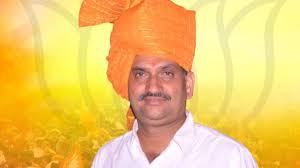Jailed former BJP MLA Kanwarlal Meena approaches Rajasthan Governor for pardon

Former BJP MLA Kanwarlal Meena has approached Rajasthan Governor Haribhau Bagde, seeking a pardon under Article 161 of the Constitution. This comes after his three-year conviction for threatening a government officer with a revolver during a land inspection in 2005.
Meena surrendered in May 2025 following a Supreme Court directive. His disqualification from the Rajasthan Assembly took effect on May 23, 2025, as per the Representation of the People Act. That law mandates immediate removal if a legislator is sentenced to two years or more.
What the Mercy Petition Means
Meena filed the mercy petition on June 27, 2025. He hopes the Governor will pardon or commute his sentence. If granted, this could help him avoid the long-term impact of his conviction.
The Governor’s Secretariat has asked local police for their feedback. Circle officers and station heads have been told to respond quickly. Their input will likely shape the Governor’s decision.
Strong Political Reactions
The Congress party has criticized the move, calling it an attempt to bypass the justice system. Opposition leader Tikaram Jully said, “A man convicted of threatening a public official should not be rewarded with pardon.”
Congress leaders have urged the Governor to reject the plea, referencing the 2013 Lily Thomas judgment. That ruling states elected leaders lose their seat immediately upon conviction.
Many fear that granting a pardon may set a dangerous example. It could suggest that political power can influence legal outcomes.
Can a Pardon Reverse Disqualification?
Legal experts are divided. Some believe a Governor’s pardon can erase the conviction’s consequences. Others argue that once a disqualification takes place, it cannot be reversed—even with a pardon.
Constitutional scholar Dr. Kavita Srivastava explained: “Article 161 gives the Governor broad powers. But using them to restore a politician’s status may go against democratic values.”
The timing of the pardon is key. If granted before a by-election is announced, Meena could attempt to contest again. But if the process delays or the Election Commission steps in, the door may close.
Public Response and Media Scrutiny
Many people online have expressed frustration. Civic groups have called for transparency in the Governor’s review. Activist Anjali Verma said, “Mercy powers should serve justice, not politics.”
Editorials in major newspapers have questioned the silence from BJP leaders. Some believe the party wants to avoid public backlash, so it has not openly supported Meena’s plea.
This silence has only raised more doubts about the intentions behind the pardon request.
The Larger Political Picture
Kanwarlal Meena’s case isn’t just about one man. It reflects a wider concern about how political figures handle legal accountability. Rajasthan has seen several such cases where convicted leaders have tried to use legal loopholes to retain power.
A pardon now could open the floodgates for others in similar situations. It might weaken public trust in the law and raise doubts about fair governance.
On the other hand, BJP insiders argue that Meena deserves a second chance, especially since the case was over 18 years old. They say the punishment is too harsh for what they call a “moment of anger.”
What Happens Next?
The Governor will now review the police reports and legal opinions. Based on these, he may accept or reject the mercy petition. There is no fixed timeline, but the decision is likely to come within a few weeks.
If the Governor grants a pardon, it may trigger legal challenges from the opposition or civil society. If the plea is denied, the Election Commission is expected to announce a by-election for the vacant Anta seat.
Conclusion
Kanwarlal Meena’s request for a pardon has stirred a deep debate about justice, politics, and power. While legal provisions allow a pardon, the ethical and democratic implications are hard to ignore.
The Governor’s decision will not just affect one MLA. It will send a strong message about how seriously India’s political system treats accountability and the rule of law.






